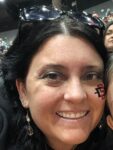By Cailin Acosta

SAN DIEGO – Panelists who focused Thursday on Israel’s Haredim, often described as the “ultra-Orthodox,” opined that more must be done to induce Haredi men to enlist in the Israel Defense Force.
Additionally, they said, Haredi schools should be required to introduce vocational studies so that Haredi men can support their families. Today, panelists said, a majority of Haredi men do not hold jobs, leaving it to Haredi women to be their family breadwinners.
These views were expressed during a Zoom session titled “The Ultra-Orthodox Community: Its Role in Society and Government” presented by the Jewish Federation of San Diego, Impact Cubed, The Israeli Democracy Institutem and the Lawrence Family JCC.
Heidi Gantwerk, the Jewish Federation’s President and CEO, introduced Shlomit Ravitsky Tur-Paz, Director of Israeli Democracy Institute’s Joan and Irwin Jacobs Center for Shared Society, and Eliyahu Berkovitz, a researcher for that organization.
Ravitsky Tur-Paz said Haredim accounted for about 17% of Israel’s population as of 2020 and 12% of the North American Jewish population. By 2040 the percentage of population is expected to double as Haredi women have an average of seven children per family while non-Haredi women in Israel have an average of three children per family.
The Israeli Democracy Institute’s director noted that many Haredi men refuse to serve in the Israel Defense Force (IDF). The Israeli government provides assistance to men who decide to study in the yeshiva until they are 26 years old.
By that time, Haredi men have fathered many children and have only their yeshiva education which leaves them unsuitable to work in vocational jobs. Educational systems for Haredi boys and girls rarely provide secular education.
About 4% of Haredi men currently serve in the IDF, Berkovitz estimated. For decades, this was not seen as a problem as the Haredi population was very small.
As of June 2024, the law expired allowing Haredi men to bypass serving in the IDF and stay in the yeshivas. They now are required to serve. An issue affecting their integration into the IDDF is that they have no secular education and have no vocational skills.
A flier (that was shown on the screen in Hebrew) has been circulating soliciting money to help raise money to pay yeshiva students since funding has halted at this time.
Charlene Seidle, President and CEO of the Leichtag Foundation and Board Chair for Impact Cubed, moderated the second session of Thursday’s program. It featured Rabbi Menachem Bombach and Pnina Pfueffer.
Bombach told how rabbis have been emphasizing the need for Haredim to serve in the IDF, especially after the October 7 massacre. Some Haredi rabbis have been recruiting 27–44-year-olds for the IDF. Some Haredi rabbis are leading a movement to enforce core education.
Pfueffer mentioned she was born in the Haredi community. She said her goal is to support women’s rights, equality, and to fight against sexual assault. Changing Haredi views on education is an uphill battle, she said. Women have no political power within the community.
*
Cailin Acosta is the assistant editor of the San Diego Jewish World.